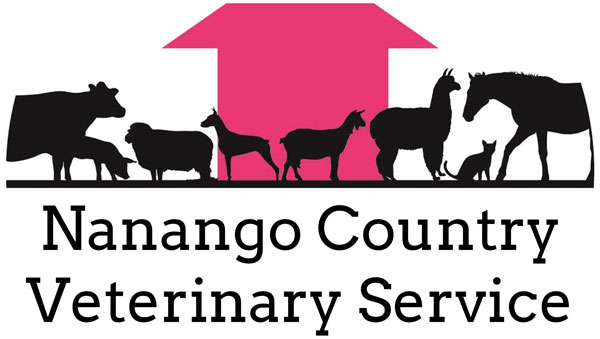Veterinary Services for Cats
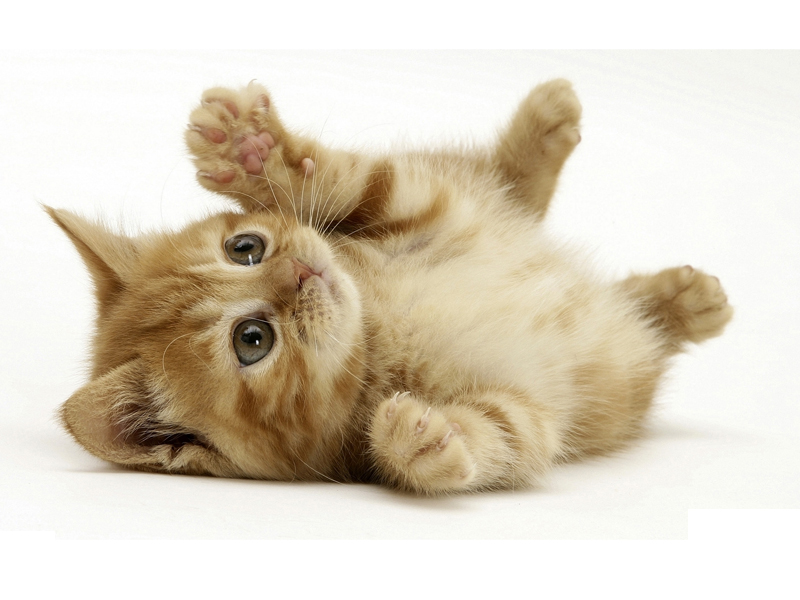
Health and Well Being
Vaccinations
Responsible pet care requires kittens to be taken to the Vet for their initial course of vaccinations, but these can not protect them for the rest of their lives. The immunity weakens overtime and your pet can again become susceptible to disease. Vaccinations need to be given yearly for life to ensure continued immunity.
However not all diseases can be cured and disability or death may result. The only practial means of protection is vaccination.
When should your cat or kitten be vaccinated?
Kittens will be “temporarily” protected against many diseases by antibodies received through their mothers milk. Unfortunately, these maternal antibodies may also neutralise vaccines. A kitten will respond to vaccination when these maternal antibodies decline sufficiently. Under normal conditions, the recommendation would be for 2 or 3 vaccination visits as specified by your Veterinary Surgeon and depending on when the first vaccination is given. Thereafter, annual booster vaccinations will provide the best protection for the life of your pet.
Intestinal parasites
Your cat is a big part of your life, so looking after their day-to-day health is a big priority. And part of that responsibility is protecting them from the threat posed by intestinal parasites. These intestinal worms present a health risk to you and your pet.
Internal parasites are introduced to cats through everyday contact with eggs in soil, or through close contact with other animals. They also need protection from heartworm, which is spread by mosquitoes. If left untreated heartworm could result in death.
Cat Diseases
Feline Enteritis
Also known as Feline Panleucopenia, this viral disease is the most dangerous affecting cats.
It is very contagious and the death rate is high, especially under 12 months of age. Pregnant cts may lose their young or give birth to kittens with abnormalities, quite often with brain damage. Symptoms are depression, loss of appetite, uncontrollable vomiting and diarrhoea, often with blood and severe abdominal pain. The virus spreads so easily that heavily contaminated areas may need cleaning with a special disinfectant. Cats that do recover may continue to carry the virus for some time and infect other cats.
Feline Respiratory Disease (Cat flu)
Otherwise known as “Cat Flu” it is caused in 90% of cases by Feline Herpesvirus (Feline Rhinotracheitis) and/or Feline Calicivirus.
Feline respiratory disease affects cats of all ages, especially young kittens, Siamese and Burmese cats. It is highly contagious and causes sneezing, coughing, runny eyes, nasal discharge, loss of appetite and tongue ulcers. Fortunately, the death rate is low except in young kittens, but the disease is distressing and may persist for several weeks. Recovered cats can continue to carry and spread the infection for long periods.
Feline AIDS
Feline AIDS is a disease caused by infection with feline immunodeficiency virus (FIV) and affects the cat’s immune system. Their natural defence against attack by other diseases may be seriously affected, much in the same way as human AIDS.
This disease is not transmittable to humans.
FIV is almost always transmitted by bites from infected cats. The virus that causes that disease is present in saliva. While some infected cats show no sign of disease, others may display initial symptoms such as fever, loss of appetite, diarrhoea, lethargy and swollen lymph nodes. As the disease progresses, symptoms may occur such as weight loss, sores in and around the mouth, eye lesions, poor coat and chronic infections. Eventually, the immune system becomes too weak to fight off other infections and diseases. As a result, the cat may die from one of these subsequent infections. Unfortunately in Australia, a lot of cats are infected with this virus.
After vaccination care
Your cat may be “off colour” for a day or two, some may have slight swelling and tenderness or pain around the injection site. On rare occasions reactions may be more serious.
Please contact our veterinarians immediately if your cat shows symptoms of distress.
Cat Parasites
Symptoms can be varied depending on the infestation:
For your cat:
- Poor growth
- Poor coat, loss of vitality and lethargy
- Pot-bellied appearance
- Inflammation of the intestinal wall, abdominal pain
- Diarrhoea and vomiting
- Intestinal bleeding, which might show up in stools
- Anaemia (identified by pale gums and tiredness)
- Itchy sores (often on paws)
For you:
Children are often most at risk due to their lack of hygiene awareness, close contact with pets, or from contaminated sandpits or soil. Depending on the type of infestation, the health risks can range from mild to extreme
- Intensely itchy red tracts in the skin, known as ‘summer itch’
- Damage to internal organs
- Blindness (roundworm)
- Life threatening formation of cysts in vital organs (Hydatid tapeworm)
Worms can live anywhere in the body, though they prefer the lining of the intestine as it is an ideal place to breed.
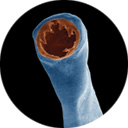
Hookworm
Hookworm attach themselves to the lining of the small intestine and have a large appetite for blood. This makes them very dangerous for cats, especially kittens, as they can cause severe anaemia or even death. Symptoms of infection include bleeding in the intestine (identified by blood in the stool), abdominal pain, diarrhoea and itchy skin sores. Heavy infections can cause serious anaemia (identified by pale gums and tiredness).
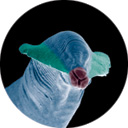
Roundworm
Roundworm are named for their large, round bodies. They live in the small intestine and infestations are very common. The symptoms to look out for in cats include diarrhoea, vomiting, poor growth and tiredness/lack of energy.
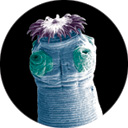
Tapeworm
Symptoms of heavy infection include weight loss, diarrhoea, anal irritation and a poor coat. However, infected cats sometimes show no symptoms at all.
For more information about our veterinary services for cats and kittens, phone on team on 07 4163 3388 or fill in our contact us form.
